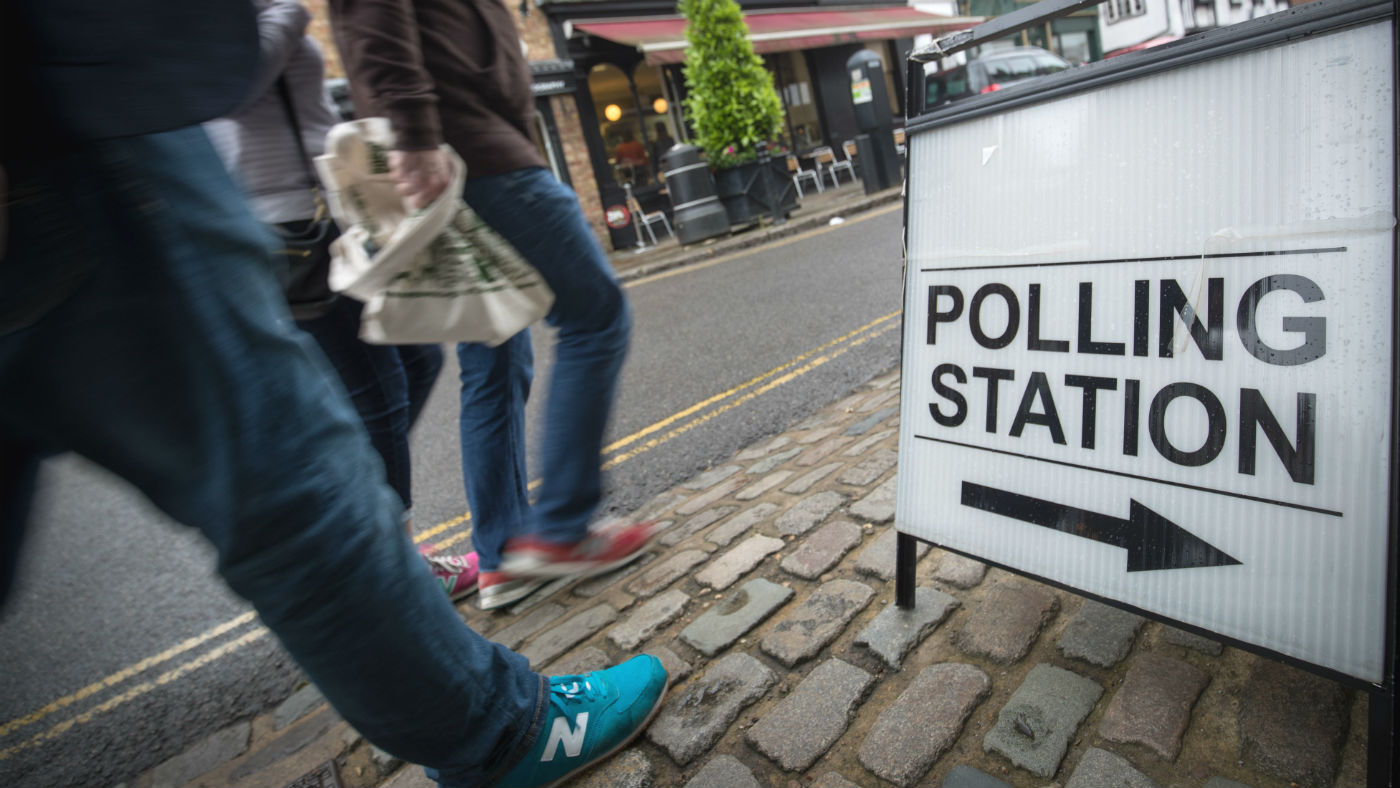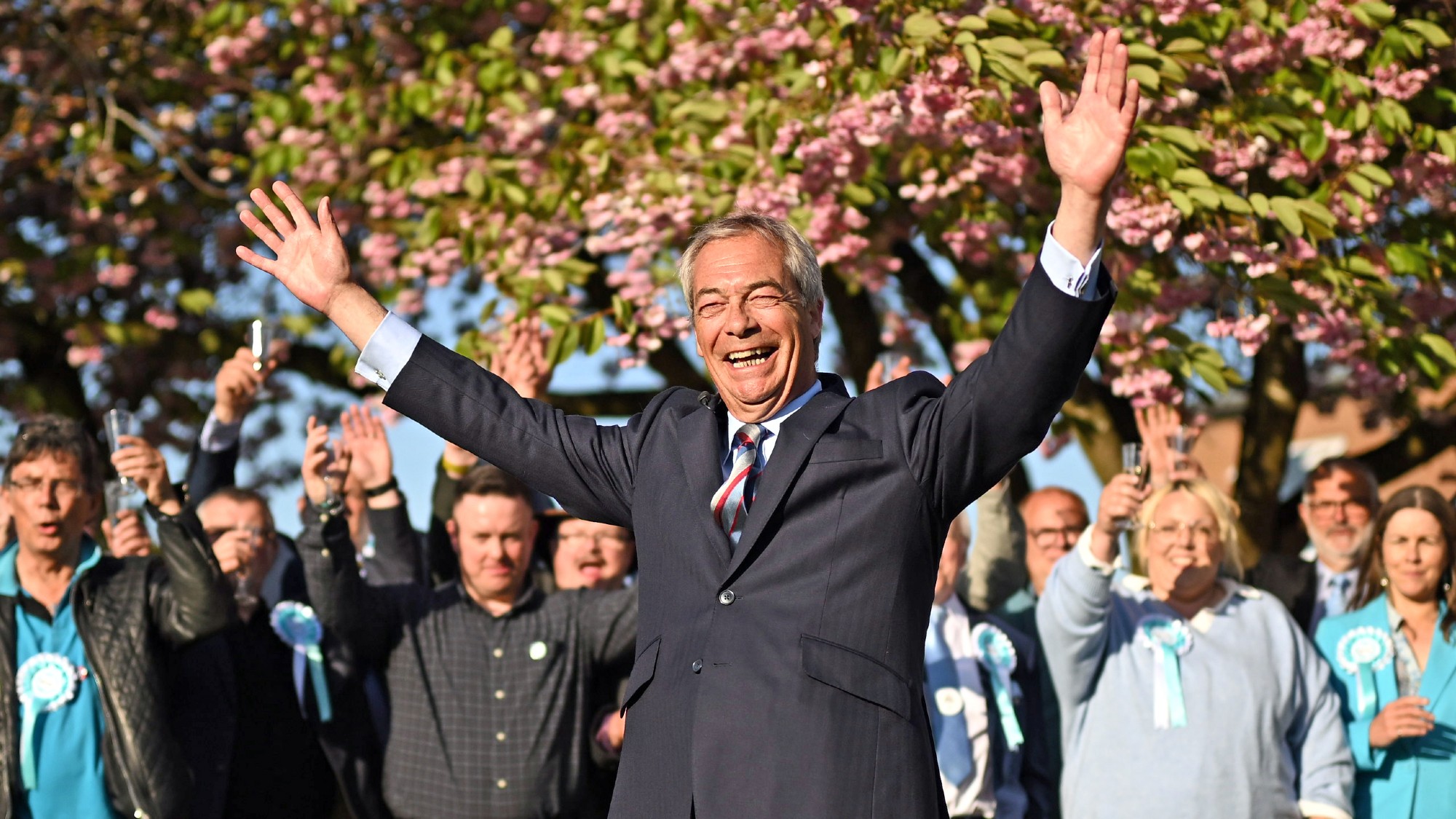What local elections mean for the Westminster power balance
Voters have first chance to pass judgement on the government’s handling of Covid pandemic

A free daily email with the biggest news stories of the day – and the best features from TheWeek.com
You are now subscribed
Your newsletter sign-up was successful
Janice Morphet, visiting professor at University College London Bartlett School of Planning Faculty of the Built Environment, on how the coronavirus crisis may affect outcome of upcoming local elections.
One of the key concerns about local elections is always their low turnout, unless there is a very specific community issue of concern, such as a hospital closure. This apparent lack of interest, by the electorate, in voting for politicians to run their councils has always been used by governments to undermine the relevance of local politicians when the latter make representations against national policies that directly affect them - planning, housing and major transport schemes.
The larger turnout achieved in parliamentary elections is used to validate the idea that decisions are best made from the centre. Of course, the low turnout in local elections may reflect the public’s understanding that local government’s powers are small and can be easily overridden by Westminster and Whitehall. They may feel that there is no point in exercising a vote if it doesn’t really matter.
The Week
Escape your echo chamber. Get the facts behind the news, plus analysis from multiple perspectives.

Sign up for The Week's Free Newsletters
From our morning news briefing to a weekly Good News Newsletter, get the best of The Week delivered directly to your inbox.
From our morning news briefing to a weekly Good News Newsletter, get the best of The Week delivered directly to your inbox.
This undermining of locally elected political representatives and the role that they play in their communities has ramped up during the pandemic. And indeed, the 2021 local elections almost didn’t go ahead. Some, including the London mayoral vote, have been postponed since 2020.
Up until just a few months ago, there were doubts as to whether they could be held during the pandemic. Would they have to be full postal elections? How would parties be able to canvass for support? Could people speak on their doorsteps? Local authority returning officers started to express concern that it would not be possible to hold elections in these conditions. Eventually, at the last possible moment, the elections were called.
Judgement on the centre?
These votes are the electorate’s first opportunity to pass any judgement on Prime Minister Boris Johnson’s handling of the crisis. Johnson’s highly centralised approach has undermined and bypassed local authorities’ long-held role in managing public health emergencies. Personal protective equipment (PPE), ventilators and test-and-trace services were procured centrally. In the autumn of 2020, local authorities and their political leaders despaired when Westminster imposed different levels of lockdown - and different levels of financial support - for different parts of the country.
A free daily email with the biggest news stories of the day – and the best features from TheWeek.com
Local government is part of a multilevel governance of the British state. But, unlike the rest of the OECD member countries, its role is not included within the constitution. This means local authority powers are at the whim of the government in power.
Local authorities have, for some time, felt that Westminster increasingly perceives local government as a “sector” - that is, an external group of agencies to be controlled rather than an inherent part of government, working as partners. Even so, they were stunned by how centralised the pandemic response ended up being.
Local authorities and, where they existed, directly elected mayors of combined authorities, started to speak out. The drama played out in nightly TV broadcasts, particularly as Manchester Mayor Andy Burnham took on London. Local leaders had the support of their MPs. This was particularly illustrated through the outspoken support for Greater Manchester, its mayor and local authorities by Graham Brady, a local Conservative MP but also chairman of the influential parliamentary backbench 1922 Committee - the only group of MPs who can unseat the prime minister.
Meanwhile, first ministers in Scotland and Wales could choose lockdown measures, work at the local level, close borders and report daily on how the pandemic challenges were being addressed. These powers were not available to the mayors and local authority leaders who were subject to centralised diktat, only adding to their frustration.
Thinking more local
Although not initially given funding to carry out their own test-and-trace services, local directors of public health started to deal with the pandemic in more traditional ways - gathering information, testing, reaching those failed by the privatised call centres and supporting the vulnerable, including providing PPE to care homes.
And as the vaccine rollout began, it quickly became clear that more localised efforts would be needed if it was to be effective across the population. The implementation of the vaccination programme through the NHS provided the evidence that local systems work and are trusted.
The local vaccination delivery had been able to develop away from the politicised spotlight and introduced to growing public approval. These successes must surely have contributed to the poll boost currently being enjoyed by the prime minister.
A good showing at the local elections could encourage Johnson to make a run for an early general election - after a good summer, while booster jabs are being given and before any new variants require further lockdowns later in the year. The PM may also use the experiences of the past year to learn the positive lessons of a localised approach. However, he could just as easily view all this as a short-term fix before going back to the recentralisation programme that was in full swing during 2020. The forthcoming devolution white paper and its consequences for local government hang on this thread.
Janice Morphet, visiting professor, The Bartlett School of Planning Faculty of the Built Environment, UCL
This article is republished from The Conversation under a Creative Commons licence. Read the original article.
-
 The Week contest: Lubricant larceny
The Week contest: Lubricant larcenyPuzzles and Quizzes
-
 Can the UK take any more rain?
Can the UK take any more rain?Today’s Big Question An Atlantic jet stream is ‘stuck’ over British skies, leading to ‘biblical’ downpours and more than 40 consecutive days of rain in some areas
-
 The UK expands its Hong Kong visa scheme
The UK expands its Hong Kong visa schemeThe Explainer Around 26,000 additional arrivals expected in the UK as government widens eligibility in response to crackdown on rights in former colony
-
 The high street: Britain’s next political battleground?
The high street: Britain’s next political battleground?In the Spotlight Mass closure of shops and influx of organised crime are fuelling voter anger, and offer an opening for Reform UK
-
 Is a Reform-Tory pact becoming more likely?
Is a Reform-Tory pact becoming more likely?Today’s Big Question Nigel Farage’s party is ahead in the polls but still falls well short of a Commons majority, while Conservatives are still losing MPs to Reform
-
 Taking the low road: why the SNP is still standing strong
Taking the low road: why the SNP is still standing strongTalking Point Party is on track for a fifth consecutive victory in May’s Holyrood election, despite controversies and plummeting support
-
 What difference will the 'historic' UK-Germany treaty make?
What difference will the 'historic' UK-Germany treaty make?Today's Big Question Europe's two biggest economies sign first treaty since WWII, underscoring 'triangle alliance' with France amid growing Russian threat and US distance
-
 Is the G7 still relevant?
Is the G7 still relevant?Talking Point Donald Trump's early departure cast a shadow over this week's meeting of the world's major democracies
-
 Angela Rayner: Labour's next leader?
Angela Rayner: Labour's next leader?Today's Big Question A leaked memo has sparked speculation that the deputy PM is positioning herself as the left-of-centre alternative to Keir Starmer
-
 Reform UK's councillors are off to a rocky start
Reform UK's councillors are off to a rocky startIn the Spotlight Three weeks after sweeping the local elections, Nigel Farage's insurgent party is beginning to realise how hard the path from rhetoric to reality really is
-
 Is Starmer's plan to send migrants overseas Rwanda 2.0?
Is Starmer's plan to send migrants overseas Rwanda 2.0?Today's Big Question Failed asylum seekers could be removed to Balkan nations under new government plans